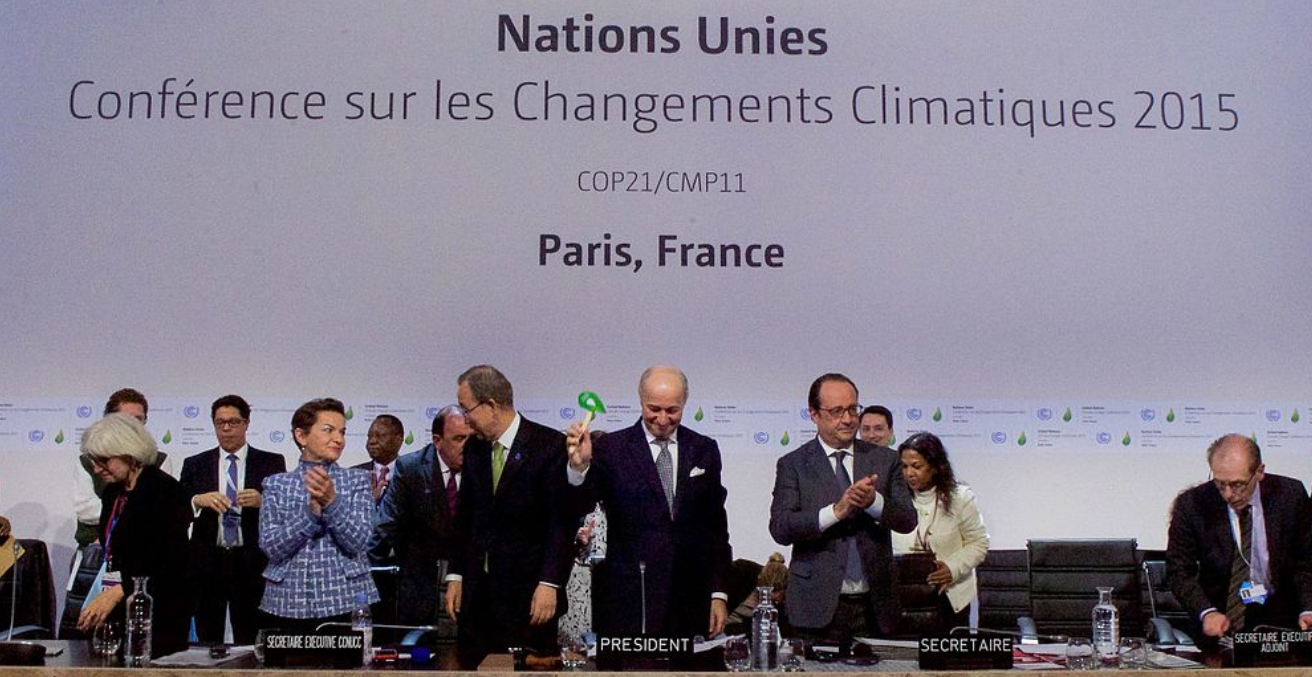How the Paris Agreement Revitalised Climate Change Multilateralism

The conclusion of COP24 serves as a reminder of the Paris Agreement’s acknowledgement of the domestically driven nature of climate change policy.
At the time of negotiations of the Paris Agreement, China, the US and India were the three largest carbon emitters and responsible for over forty percent of global emissions. Importantly, these three states “did not wish to subject themselves to legally binding obligations.” Due to the difficulties in addressing climate change without their participation, the agreement accommodated their concerns by letting each country set their own targets. This is implicit in the Paris Agreement’s recognition that “parties may be affected not only by climate change, but also by the impacts of the measures taken in response to it.” From a theoretical perspective, such recognition poses problems for effective multilateralism, which should avoid moulding generalised principles of conduct around particular national interests. However, rather than distorting the logic of multilateralism, this soft approach “acknowledges the primacy of domestic politics in climate change” and “merely rationalises” it into a generalised climate policy.
Getting the Balance Right: Can High Participation Drive Normative Change?
Hard commitments make shirking responsibility more difficult but also result in lower participation, whereas soft commitments generate wider participation but cannot compel state compliance. In the case of climate change multilateralism, there are two unique and interrelated factors that favour high participation. First, because carbon emissions are not physically limited to set national boundaries, any effective mitigation response requires global participation. Second, because there is no immediate solution to solving climate change, any agreement must set a framework that promotes global cooperation in the long-term. The Paris Agreement has already made progress on this issue through its acknowledgement of domestic interests and more flexible internal structure. Most significantly though, the Agreement has secured the signatures of 195 out of 197 parties, with 181 signatories including seven of the world’s largest carbon emitter completing ratification. What is important then is whether soft law can maintain this high participation to eventually generate normative change in individual state behaviour.
How to Incentivise Compliance
Not only does the review system in the Paris Agreement seek to pressure states through reputational costs, it also provides a forum for active discussion about climate change. The agreement’s review system would arguably benefit in the short term from fostering active engagement and consultation between member states about their progress in upholding pledges. In addition, the review system should reserve the name and shame model for non-participating states. This promotes the necessary repeated interaction for internalisation, but in a way that allows for trust, not cynicism, to develop between participating parties. In some respects, this suggested model is evident in the recent global response to US President Donald Trump’s decision to withdraw from the Paris Agreement. This decision has galvanised participating states who are now more determined than before to mitigate climate change and stigmatise the non-participant. For example, Germany’s Chancellor Angela Merkel’s spokesperson declared that Germany is “now more than ever will work for global climate policies.” The Paris Agreement has invited “non-party stakeholders, including civil society, the private sector [and] financial institutions” to actively participate. Indeed, President Trump’s decision received a strong critical reaction from major non-state actors, including multinational corporations like Apple and religious institutions such as the Vatican. This demonstrates that the agreement is already having some normative effect on broader society. Considering the substantial influence these non-state actors possess, the Paris Agreement should continue to encourage their involvement as an additional avenue to shame non-participating states and ultimately increase the reputational costs for non-performance.
At a surface level, the Paris Agreement poses a challenge to conventional understandings of multilateralism, as its incorporation of domestic interests appears to contradict the notion of having generalised principles of conduct. Yet, rather than upsetting the logic of multilateralism, this soft approach merely acknowledges the reality that climate change policies are domestically driven. It has been frequently raised, however, that shaping climate change policy around domestic interests will mean pledges to address it are inadequate to satisfy the necessary targets. Although this concern has merit, it must be qualified. Hard law has proven equally unable to sustain binding obligations at a level to properly reduce emissions. In fact, Kyoto’s attempt to do so resulted in a situation where the three largest emitters held no obligations.
Soft law compensates for its less ambitious approach through increased flexibility to changing political priorities. The flipside to no legal enforceability is high participation. Because climate change transcends national borders, any desire for long-term action requires global cooperation. The Paris Agreement intends to use its high participation to drive normative change so states become willing to genuinely commit to climate change in the long-term. To assist this process, it is recommended that the Agreement use a more conciliatory review system in the short-term to promote repeated interaction and trust between participating states while focussing name and shame campaigns on non-participating states to stigmatise their behaviour. Although this might sacrifice short-term progress, it does so to pursue long-term cooperation that can lead to properly enforced commitments.
Ultimately, only time will tell if this soft approach represents effective multilateralism. What is apparent now is the Paris Agreement has provided itself with the necessary tools to make a substantial difference.
Rhys Thomas recently graduated from the University of Melbourne with a Master of International Relations. He is interested in East Asian affairs and its impact on Australia.
This article is published under a Creative Commons Licence and may be republished with attribution.





